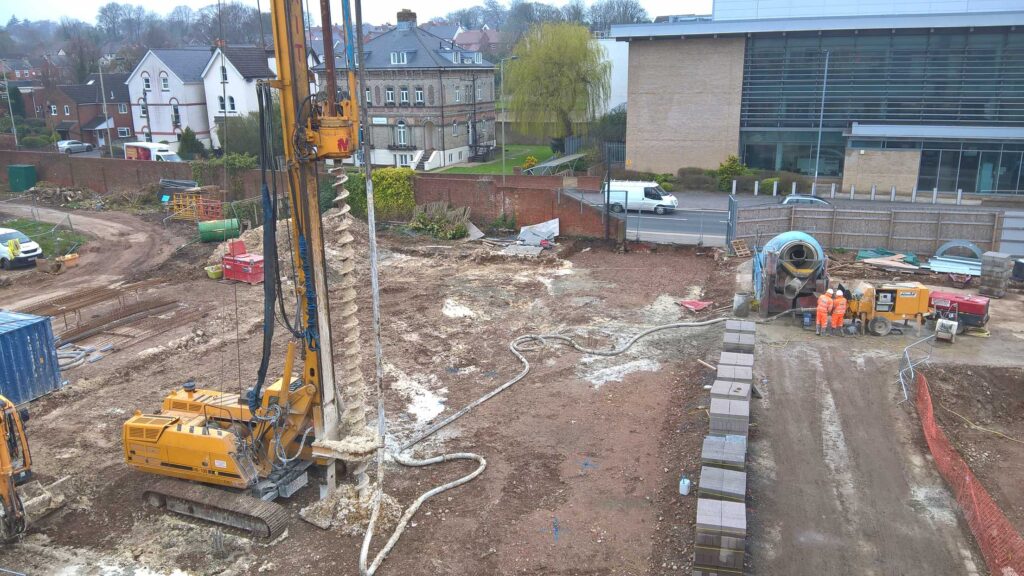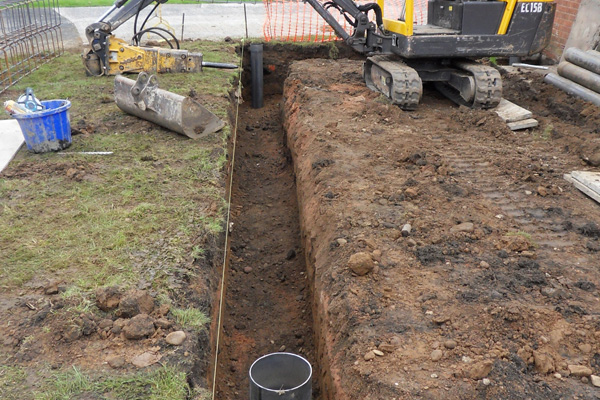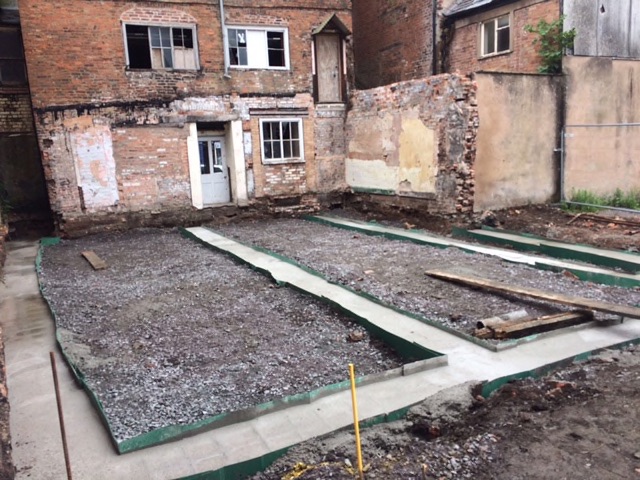Understandably, there can be a lot of crossover between construction and groundworks. So, first, let’s clarify what groundworks mean. It refers to the preparation of sub-surfaces for the construction works to start in that place. It is the foundation on which everything is built and can be referred to as the cornerstone and starting point of any construction job.
At times, there is already an existing project at the location so the only process that can take place before the groundworks are the demolishing of the existing property for the new one to start. Groundworks is a vital process for any building as it is the very beginning of it.
We are a team of experienced contractors who are capable of providing a complete range of support and solutions for the groundwork to all our domestic and commercial customers. Every project is carried out with a high degree of professionalism and care to best serve the needs of all our customers.
Groundworks include a lot of services in it and we specialize in some of them including,
The health of groundworks determines the state and health of whatever you are building after. It is a testing process for the site where you are deciding to build something, it is the onset of the building project.
Groundwork is not just one simple task, it involves so many sub-tasks in it which make it an even more crucial step of the construction process. Some of the aspects of it are,
It is important that before starting the construction, the site is thoroughly investigated to check for any contaminations, past land uses, and stability. As part of this initial process, the topsoil is generally removed and the land is leveled if it is found to be stooping.
Demolition and landscaping also come hand in hand with site clearance as these prove to be efficient to make the process smooth.
In demolishing, if it is a basement project, many tonnes of soil need to be excavated to start something new. Landscaping can be hard or soft depending upon the materials used in the process.
The substructure is important as this process defines where the weight of the complete building will rely on.
Waterproofing, reinforcements, formwork, concrete, retaining walls, foundations, and footing are required to be done especially in a new project.
Drainage systems, trenching, water, electricity, cabling, and gate and fence installation. All of these should be kept in mind at all the steps of construction as they are necessary for the building.
The foundation of the building interfaces it and provides strength and support to keep the building from unbalancing, splitting, or unsettling. It is located below the ground level and it transmits the weight of the building to the subsoil. It gives a firm bed for the building operations.
Foundations should be strong enough to support the building during earthquakes, strong winds, or flooding. Mainly there are two types of foundations, deep and shallow.

Shallow foundations -
These are also called a spread or open footings. These are provided immediately underneath the lowest structure of the building and are made by excavating the earth to the lowest part of the footing.
They are generally not suitable for weak or highly compressible soil. The main objective of this to distribute the load of the structure over a considerable amount of base area. These are of various types like,
One of the most simple and common types of foundations and are used when the load of the building is over columns. Each column usually has its footing and is connected via plinth beams at the ground or below ground level.
These are usually supported by two or three columns in a row and are used when two columns are so close to each other that single columns can’t be used.
Commonly found in load-bearing foundations and it acts as a long strip that can hold the weight of the entire building. It is more economical than the combined method.
This method is used when the soil bearing capacity is low. The column loads with heavy single footings and piles cannot be used in such cases, and differential settlement must be reduced.
These are most often used when a basement has to be constructed.
They are built too deeply below the ground and use some extra artificial arrangements like piles, wells, etc. these can be used to transfer the load to a very deep level if unsuitable soil is present at the surface level.
The different types of deep foundations are,
It is a long cylinder of any strong material that is pushed into the ground to act as steady support for the building. They are most convenient when the soil at the surface is weak and cannot support the weight and when a building has very heavy concrete loads like in a high-rise building.
Generally for below the water level for the bridges as it is a deep level foundation.
The difference here is that the pile transfers the entire load of the building to the soil across the full height of the pile, by friction. Technically meaning, the entire surface of the pile, which is cylindrical, works to transfer the forces to the soil.
The entire process of groundwork has so many variables in it like the type of material used, the process used, equipment, machinery, and the types of foundation that you choose. All of this makes it very difficult to give an approximate price for this.
All we can say is that since groundworks are such an important part of the construction, spending a good amount of money on it won’t be a loss for you.

We understand the requirements of all our customers and recognize that our work comes in the early stages of the construction process. We also understand that every customer has different set budgets and a program that works for them which we have structured with proper detail in our working process.
We eliminate the need for you to hire several contractors for all different processes and provide you with the best and multifunctional contractors. We are fully skilled and equipped to work on multiple projects at one time with full attention and enthusiasm for each.
Our specialized services will add value and provide you additional benefits to your project. We are competitively priced and we aim to provide first-class quality work to you. We are your one-stop spot for all your groundwork solutions and we are available for you at every step of the construction way.
